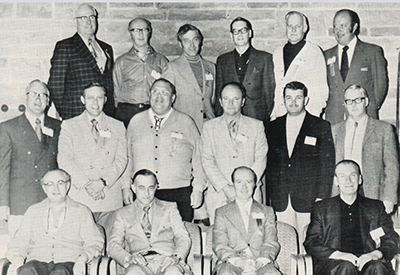An Open Letter to CEOs and Presidents from Your Marketing Department

Feb 3, 2020
By Katrina Olson
Over the past nearly 20 years, I’ve had the privilege of working with marketing people, CEOs, presidents, VPs and directors from various electrical manufacturers, distributors, associations, and buying groups. And I’ve had the benefit of consulting with both upper management and marketing practitioners.
More recently, I’ve been working in a more hands-on capacity with an east coast distributor with 11 locations and three lighting showrooms. So far, it’s been the most challenging and rewarding position I’ve held in my industry career. I have no complaints.
But now that I’m in the trenches, all the comments I’ve heard over the years from marketing practitioners make even more sense.
Marketing in the electrical distribution supply chain is complicated. Why? In addition to marketing strategy, planning, tactics, and project management, marketers must understand:
• categories and products the company manufactures or sells
• diverse markets and audiences the company serves
• coop programs (and they’re all different)
• sales and pricing strategy
• sales and marketing technology (that keeps evolving and changing)
• website development, including e-commerce principles and technology
• different sales channels and processes (e.g. counter versus large commercial sales)
• media, customer, market, and marketing research
• social and digital media channels, tools and analytics
• promotional campaigns
• event planning and execution
• informational and journalistic writing (e.g. blogs and public relations)
• art direction and design
• retail merchandizing (for counters)
• media buying
• basic accounting and bookkeeping principles
• relationship-building and communication skills
• business concepts and terminology
It’s a tall order, and one that can’t be filled by just one or two people. As technology advances at breakneck speed, the learning curve gets steeper, and marketing departments can’t keep up while maintaining their day-to-day activities. They need help from others.
But most importantly, marketers need the support of CEOs, presidents and vice presidents who empower them to do their best work. How can the executive team ensure they give the marketing department what they need to succeed?
I feel I’ve been in the industry long enough and talked to enough marketers to speak on their behalf. I hope I do their concerns justice. Following is an electrical distributor marketer’s wish list — the things we all want from our companies, bosses, and coworkers.
1. Realize we can’t do it all ourselves. Don’t expect one or two people to be proficient or even practised in all of the skills listed previously. It’s not possible.
2. Invest in technology tools and platforms. To keep pace with the industry and online competitors, the company must acquire an appropriate CRM, a lead management and marketing automation platform, analytics and reporting tools, content management system, and more.
3. Invest in education and training for marketing people. Marketers should have some understanding of marketing planning and strategy; if not, that’s the foundation. They may also need training on various technology platforms, graphic design, research methods, products, and more. Again, refer to the previous list.
4. Get us help. Sometimes, training and education are enough. For example, some people have a gift for writing or design; some never will. Some people “get” technology; for others it’s a struggle. Get marketing staff’s input on how best to fill these roles.
5. Trust us to know marketing. Someone had enough confidence to hire us, so give us the opportunity to do our job.
6. Let us take calculated risks. It’s the only way to pull ahead of the competition. If marketing is expected to do what everyone else is doing, they’ll get similar results. To overtake our competitors, we must do it differently.
7. Give us creative freedom. This will be my sixteenth year judging an annual marketing competition among electrical distributors and manufacturers. I’ve seen everything from the mundane to the outstanding. I only remember the truly innovative and imaginative ones.
8. Respond when we have questions. We may be waiting on your approval, corrections, or information to send out an email, plan an event, or coordinate a campaign. We count on others’ experience, market knowledge, and product knowledge to ensure we’re using the right verbiage.
9. Don’t micromanage us. Give us a goal, a little direction, and your best advice, then let us do our job.
10. Do your job. The C-Suite should set company goals, have a growth plan, and devise a business strategy. That will inform how we market. Otherwise, we’re just doing what we think is best.
11. Similarly, don’t make marketing solely responsible for success. A successful marketing program requires coordination with and support from counter staff, inside and outside sales, purchasing, and often IT. Marketing doesn’t happen in a vacuum.
12. Send us to conferences and association meetings. In addition to attending marketing conferences, we need to know what’s new in the industry and what’s coming so we can ask questions and plan ahead.
13. Invite us to executive-level meetings. We need to understand the bigger picture of how we make money. If we suggest discounting a product for a promotion, we need to know how that affects margins. We can move a ton of product with a discount, but if the company doesn’t make money, what’s the point?
14. Give us a reasonable budget. We can’t do everything with cooperative (co-op) funds. And co-op advertising limits our ability to build and promote the company’s brand.
15. Give us the option of saying no. People come up with some pretty wacky ideas. Often they’re inconsistent with our brand, not aligned with our target audiences, and don’t address a real problem.
16. Let us be consultants, not just order-takers. People often come to us for tactics when what they really need is a solution. A flyer is not always the answer. It might be a better website, an email program, a sales promotion, or an entire campaign. Bring us a problem and let us help you solve it.
17. Allow us to make mistakes without serious consequences. We’ll do the research, get input from key people including our “internal clients,” and test our ideas when possible. But even when we’re making the best decisions, with the information we have and the best intentions, something may go wrong. It may be something out of our control like an unforeseen scheduling conflict. We’ll take responsibility, but we ask you to also remember our successes.
Sure, it would be nice for our “internal clients” to simply delegate the entire marketing function; but that’s not how it works. We need support from most every department. Accounting can help set up and monitor budgets and expenditures. Sales can clarify our customers’ wants and needs. Purchasing can let us know when we get a special deal tied to a promotion. But most importantly, the executive team can give us the resources, authority, freedom, training, and support to do the best possible job of generating revenue for the company.
I’m very fortunate to be in a position where I have pretty much everything on this wish list. And I want this for all my marketing friends and associates as well.
So, if you’re a president or CEO, take this article to your marketing team and ask them to circle the items that they’re lacking (if you dare). If you’re a marketer, leave this article on someone’s chair and see if they take the hint.
Katrina Olson is a marketing consultant, trainer, and writer, and principal of Katrina Olson Marketing + Training. She works with distributors, manufacturers, associations, and other B2B clients, as well as writing for several industry trade publications. She can be reached at katrina@katrinaolson.com or via her website at www.katrinaolson.com.











